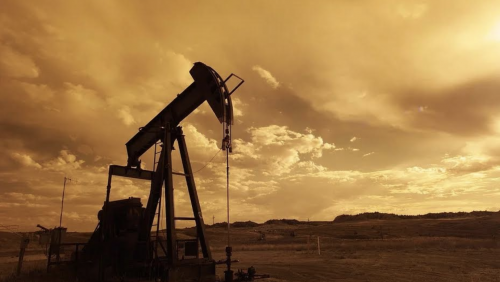A National Problem with No National Solution
February 26, 2020 by Gabriel Dowdell

Should the EPA regulate fracking more heavily? Currently, states that benefit financially from fracking regulate the industry.
In the United States, hydraulic fracturing––commonly known as fracking––has drastically increased in recent years.[1] In 2000, approximately 276,000 natural gas wells existed in the United States; within ten years, that number almost doubled to 510,000.[2] Fracking is a process used to extract oil and gas resources from the earth by drilling below the surface.[3] A mixture of water, sand, and chemicals are injected into the earth which allows natural resources to flow out.[4]
This extraction method is not without its drawbacks. Research suggests that fracking can lead to seismic activity and earthquakes.[5] Further, EPA studies reveal that fracking can lead to the contamination of drinking water sources in certain circumstances.[6] Problems created by fracking reach across the country.
Despite the national implications of fracking, the industry has seen a lack of national solutions or regulations. Instead, regulation of fracking has been left largely to the states. This is especially problematic where states with the most fracking activity within their borders also have the most to gain from their extraction activities. Naturally, these states are incentivized to regulate loosely. The federal government should be more involved “We need stronger federal regulation of fracking for a simple reason: It affects the entire nation, not just individual states,” says Jody Freeman, a professor of Administrative and Environmental law at Harvard Law School.[7] However, the federal government has taken a very hands-off approach. In fact, the Environmental Protection Agency (EPA) informed environmental groups that updating federal standards involving toxic waste from oil and gas wells created through fracking procedures was “not necessary.”[8]
With the federal government taking a largely hands-off approach to fracking regulation, prudent observers must closely analyze what states are doing to regulate fracking. Two states that are heavily involved in the fracking industry, Oklahoma and Texas, have taken a very pro-fracking approach to regulation. In 2015, Oklahoma passed SB 809 which created a regulatory agency, the Oklahoma Corporation Commission, with full authority over regulation of the oil and gas industry within the state.[9] At first glance, this legislation seems to move in the direction of providing efficient regulation over fracking in the state. Oklahoma’s governor claims that “the alternative [to SB 809] is to pursue a patchwork of regulations that, in some cases, could arbitrarily ban energy exploration and damage the state’s largest industry . . . ”[10] However, this bill stripped cities and municipalities of their authority to regulate fracking within their jurisdictions and gave that authority to the Oklahoma Corporation Commission.[11] In fact, SB 809 makes it illegal for cities to ban fracking.[12] Further, the courts are enforcing the state’s ability to usurp municipal authority in regard to oil and gas regulation. For example, the Oklahoma Supreme Court voided Kingfisher County’s water line ban holding that the Oklahoma Corporation Commission has “exclusive authority” to regulate oil-field water.[13] Therefore, as local municipalities try to step up and regulate the fracking industry within their community, they are hampered by a state government that may not have the same interests.
Fracking has the potential to benefit the United States, but many issues need to be addressed first. Jody Freeman says, “States aren’t fully up to the task of regulating these risks. And the problems inevitably cross state borders, making them a national issue.[14]” A national problem presented by fracking necessitates a national solution. Many of the states currently regulating fracking have a conflict of interest as fracking is often the “states largest industry, largest employers and largest taxpayer” – Oklahoma Governor Fallin.[15]
[1] Live Science, https://www.livescience.com, (last visited Feb. 8, 2020)
[2] Id.
[3] What is Fracking and why is it Controversial?, BBC News, Oct. 15, 2018, https://www.bbc.com/news/uk-14432401.
[4] Id.
[5] Thea Hincks et al., Oklahoma’s Induced Seismicity Strongly Linked to Wastewater Injection Depth, 359 Science 1251 (2018).
[6] U.S. EPA, Hydraulic Fracturing For Oil & Gas: Impacts From the Hydraulic Fracturing Water Cycle on Drinking Water Resources in the U.S., U.S. EPA, https://cfpub.epa.gov/ncea/hfstudy/.
[7] David Spence, Should the Federal Government Regulate Fracking?, Wall Street Journal Online, Apr. 14, 2013.
[8] Sharon Kelly, EPA Decides Not to Regulate Fracking Wastewater as Pennsylvania Study Reveals Recent Spike, DESMOG, Apr. 25, 2019, https://www.desmogblog.com/2019/04/25/fracking-wastewater-disposal-health-pennsylvania-environmental-protection-agency.
[9] OK SB 809 (2015).
[10] Oklahoma Lawmakers Officially Prohibit Local Fracking Bans, Oil Industry News, June 3, 2015, https://www.oilandgaspeople.com/news/3205/oklahoma-lawmakers-officially-prohibit-local-fracking-bans/.
[11] Ari Phillips, Oklahoma Lawmakers Vote to Outlaw Fracking Bans as Earthquakes in the State Spike, ThinkProgress, Apr. 23, 2015, https://thinkprogress.org/oklahoma-lawmakers-vote-to-outlaw-fracking-bans-as-earthquakes-in-the-state-spike-8f4ca87abcec/.
[12] OK SB 809 (2015).
[13] Joe Wertz, Oklahoma Supreme Court Sides With Industry in Fight Over Oil-Field Water Regulation, State Impact Oklahoma, Nov. 15, 2018, https://stateimpact.npr.org/oklahoma/2018/11/15/oklahoma-supreme-court-sides-with-industry-in-fight-over-oil-field-water-regulation/.
[14] David Spence, Should the Federal Government Regulate Fracking?, Wall Street Journal Online, Apr. 14, 2013.
[15] Oklahoma Lawmakers Officially Prohibit Local Fracking Bans, Oil Industry News, June 3, 2015, https://www.oilandgaspeople.com/news/3205/oklahoma-lawmakers-officially-prohibit-local-fracking-bans/.

